
Need to increase your credit score in Canada? First, you need to understand how a credit score works. So, what is a credit score? Basically, it’s a 3 digit number that stands between you and other people’s money. When you apply for a loan, you are asking to borrow money that doesn’t belong to you. A loan is an investment, and every investment comes with risk. Investors trust lenders to assess risk before lending out their hard-earned bacon to strangers. Lenders are basically bouncers, deciding who can or can’t access money, how much they can access, and the interest rate. Below is everything you need to understand so you can increase your credit score in Canada.
- What is a credit score?
- Why is your credit score important?
- Credit score numbers: what do they mean?
- Excellent Credit Score (800-900)
- Very Good Credit Score (740-799)
- Good Credit Score (670-739)
- Fair Credit Score (580-669)
- Poor Credit Score (300-579)
- What is a credit report?
- Credit reporting agencies in Canada
- How is your credit score calculated?
- What else is on your credit report?
- Credit score vs. credit rating: what's the difference?
- How to increase your credit score in Canada
- Check your credit report for errors
- Never miss a payment
- Pay off your credit card balance
- Keep your credit cards balances low
- Pay off bad debt
- Diversify your debt
- Don’t close your old credit accounts
- Avoid opening new credit accounts
- Credit score: final thoughts
- Frequently Asked Questions
What is a credit score?
A credit score is a number on a scale of 300 to 900. It tells potential lenders how well you manage debt and credit; money that doesn’t belong to you. The higher the score, the better you are at repaying your debts. The lower the score, the less likely you are to repay your debts. The only way you can increase your credit score in Canada is through your behaviour and demonstrating that you can manage your payments.
Lenders use credit scores to determine how risky you are as a borrower; they need to know if you’re going to pay them back or disappear with their cash. A credit score helps them decide if you are trustworthy enough to lend money to.
A great credit score can unlock higher lending amounts, lower interest rates and more favourable loan terms. It even influences your insurance premiums in many provinces. Poor credit scores do the opposite.
Lower than average scores limit how much money lenders will advance to you, and you’ll get charged higher interest rates too. If your credit score is very poor, you could be denied credit altogether.
Why is your credit score important?
Nowadays, you need to have good credit for pretty much everything. Need a cell phone plan or want to apply for an apartment? Your credit score will influence your success. As previously mentioned, insurance providers are starting to use credit scores to help determine the cost of premiums, and even some employers require a credit check before they’ll consider hiring you. Have you been having a hard time finding a job? You may need to increase your credit score.
Most people don’t have enough money to pay cash for a new car, a Bachelor of Arts Degree, or a new house. We all need to borrow money at some point in our lives. Your credit score is incredibly important because it dictates whether or not you can borrow money when you need it, how much you can borrow, and the interest rate.
Credit score numbers: what do they mean?
Credit scores fall into 5 basic risk categories. Each risk category affects your approval, interest rate, terms, products and whether or not you’ll get any kind of special perks like cash back rewards or Air Miles. Let’s take a look:
Excellent Credit Score (800-900)
Congratulations! You’ve got moves like Jagger. It’s not easy to break across that 800 point threshold. In fact, in a span of five years, I only saw a perfect 900 point credit score three times!
It takes a lot of hard work and discipline to get here. You’ve never missed a payment, you pay off your credit card balances in full each month, and you only apply for credit when it makes sense.
This credit score range unlocks quick, sometimes instant, loan approvals. You’ll enjoy the lowest possible interest rates and access to exclusive credit products like top-shelf credit cards with lucrative points and cash back rewards.
Very Good Credit Score (740-799)
Great job! You’ve managed your debt very well and built a credit score to be proud of. You’re financially literate and you manage your personal finances well. You only apply for credit when you really need it. You hardly ever miss a payment and your credit card balances are probably quite low.
In this credit score range, you won’t be turned down for credit. Your hard work and debt management skills have unlocked lower interest rates and premium credit card rewards. You may not get that coveted Business Platinum Card from American Express, but you still get access to premium products at lower rates with better rewards.
Good Credit Score (670-739)
Well done, young grasshopper! You have good credit. Sure, it could be better. But you’re still ahead of the average Canadian credit score. You’ve probably missed a payment here and there. Maybe that credit card you forgot about was sent to collections.
Or maybe you’ve never missed a payment or defaulted, but you’re simply carrying higher balances on your credit cards month over month. You’ve made some mistakes, but nothing you can’t bounce back from.
Credit scores in this range will generally not have a problem getting approved for lending. However, you might experience higher interest rates and possibly lower lending amounts. Your mistakes aren’t catastrophic. Lenders will still approve your application but they’ll probably give you a standard rate, or slightly higher, just in case the past repeats itself.
Fair Credit Score (580-669)
Unfortunately, your credit score is below that of the average Canadian. You’ll find it difficult to get approved for lending at a traditional bank or credit union. You’ve likely missed quite a few payments or all your credit cards are maxed out, or a mix of both. And you for sure have some bad debt sitting in collections.
The good news is that there are still lending products available to you, but you’ll be charged much higher interest rates. You may even be asked to secure a loan with some collateral or a co-signer. Also, you probably no longer qualify for more lucrative rewards credit cards and may have to settle for basic credit card products.
If you are new to credit, like students and new Canadian immigrants, your credit score is 0. But it will fall into this category after you open your first credit account. That’s OK and perfectly normal. Lenders understand this and have special credit cards for beginners just like you. In time, you’ll be able to qualify for better credit products at lower interest rates. You'll need to increase your credit score if you want to access traditional lenders and better terms.
Poor Credit Score (300-579)
Oh, dear. Looks like you’ve had a rough time and life handed you a bag of lemons. You’ve missed a lot of payments. Your lenders have charged off a few of your accounts or sent them to collection agencies. And your credit cards are probably charged up over their limits.
You’ve gone through a bankruptcy or consumer proposal in the past, going through it now, or on your way there. You’re not a bad person, but some bad stuff happened to you, like a job loss or divorce. At this point, the major banks and credit unions won’t lend to you.
You probably can’t open any new credit cards and may be forced to use a secured credit card, like Plastk or Refresh, instead. But don’t despair. You can come back from this. It will just take time and discipline to increase your credit score. If you need access to credit, you’ll need to go through a private subprime lender. You may also need to secure your loan with collateral or be asked for a co-signer to guarantee your loan.
What is a credit report?
Your credit score says a lot about your character, at least when it comes to how you handle debt. But it’s not like you walk around with a credit score card in your wallet. So how do lenders know what your credit score is? Where do they get that information?
They get it from both your credit report and your application. Your credit report is a file that summarizes your history using credit; called a credit history. Every time you apply for a loan or other credit product, it’s documented in your credit file and stays in your file for up to 7 years. When you open a credit account, like a credit card or car loan, your lender will send information about you and that debt to a credit reporting agency.
Credit reporting agencies document all your credit items, analyze how you manage them and then use that information to rate you on a scale of 300 to 900; your credit score. But who are these credit reporting agencies and how do they calculate your credit score?
Credit reporting agencies in Canada
Lenders submit information about new borrowers to credit reporting agencies. They also request credit reports from these agencies to assess the creditworthiness of potential borrowers. If there are changes to an existing credit account, like paying it off or closing it, that gets documented too and stays on your credit report for up to 7 years. There are two major credit reporting agencies in Canada, known as credit bureaus. They are:
- Equifax
- TransUnion
Technically, there are three credit reporting agencies; the third one is Experian. However, the vast majority of Canadian lenders use either Equifax or TransUnion. Your score may also be avaiblable for free via your bank or companies like ClearScope. All three credit bureaus collect personal information about you from your lenders. Also, each lender sends in a monthly report to the credit bureaus about how you’re managing the credit that particular lender gave you.
Equifax and TransUnion store this information in a database, analyze how you use credit, then assign you a credit score based on your borrowing history and behaviour. They also share this information with lenders every time you apply for new credit or refinance existing credit, like your mortgage. So how do these credit bureaus calculate your credit score? Let’s take a look.
Credit lock
If you are a Quebec resident, you have an option to protect yourself against fraud. As of February 1, 2023, you have the option of freezing, or locking, your credit report with Equifax and TransUnion. This prevents lenders and other institutions from accessing your credit report to open a new line of credit, increase a credit limit, or even a car loan. The credit lock is completely free and does not affect your credit score. In addition, you can unlock your report at any time.
How is your credit score calculated?
Your credit score is based on the information your creditors share with the credit reporting agencies, known as bureaus. Each bureau is a privately owned and operated entity. They each use their own specific formulas and algorithms to analyze the information on your credit report to calculate your credit score.
While your credit score may differ between the credit bureaus, they all use the following components as part of their credit score calculation process, and each component is similarly weighted in your credit score by both bureaus:
Payment history (35%)
Your payment history is the most important part of your credit score. Your repayment behaviour makes up 35% of your total credit score. Why? Because it’s the number one indicator that tells lenders whether or not you will pay them back.
If you have a spotless repayment history, lenders have peace of mind that you will pay your loan as agreed. It is unlikely they will have to call you looking for your payment, or send your account to a collection agency.
Credit utilization (30%)
The second most important part of your credit score is your credit utilization ratio. It measures how much money you have access to from credit cards and lines of credit, versus how much of that money you have already spent. Your credit utilization ratio accounts for 30% of your credit score.
Those with a low credit utilization ratio are either carrying very low balances on their credit cards and lines of credit, or they don’t carry balances at all. Those with a high credit utilization ratio are carrying balances.
The more you owe on your credit cards and lines of credit, the riskier you become to lenders. It is a red flag that you may be using credit to supplement your income, or that you have trouble managing your money.
Age of credit (15%)
The third most important part of your credit score is the overall age of your credit file and your individual credit accounts. When lenders check your credit file, they’re looking at your history managing debt.
The older your file is, the more insight lenders have about your borrowing behaviour. If you are new to credit you will naturally have a lower score. That’s because there isn’t enough history or information to accurately assess how well you manage your debt over time.
If you are a student or new to Canada, you can start building your credit history right away with special credit cards for beginners. Many lenders offer credit products for those just starting out on their credit journey.
Inquiries (10%)
Every time you apply for credit your potential lender will “pull” or “check” your credit. That means they’ve requested a copy of your credit report from Equifax or TransUnion, and that request is recorded on your report as an inquiry. There are two types of credit checks:
Soft: Soft credit checks do not affect your score because they are not directly related to new credit, such as when an employer checks your credit, or when you check it yourself. You can check your own credit report as many times as you want without affecting your credit score through a free app like Borrowell.
Hard: Hard credit checks happen every time you apply for credit and they affect your credit score, but only temporarily. The lower your credit score to begin with, the more it will impact your score.
If your credit score is average or better, it may drop a few points but should rebound the following month as long as you make your debt payments on time and in full. If you have several hard credit checks in a short period of time, it signals that you are desperate for credit. The scoring algorithm considers this very risky behaviour and your credit score will drop significantly.
Hard credit checks require your consent in every province and territory in Canada except for three: Nova Scotia, PEI, and Saskatchewan. In these provinces, they only need to notify you about a credit check, they do not need your permission to check it.
Public records (10%)
On your credit file, a public record indicates if you have any debts with a collection agency. It also shows potential lenders if any other creditors have pursued you in court for unpaid debts, or if you have experienced a bankruptcy or consumer proposal.
Your credit report may even show if Canada Revenue Agency (CRA) has ever legally pursued you for unpaid income taxes. It can even reveal if you have past due speeding tickets or if you are in default of child support payments.
What else is on your credit report?
Since your credit report contains information about your borrowing history, it goes without saying that it has a lot of financial information about you. But there may be things on your credit report you might not be aware of. Let’s take a look at what can show up on your credit report:
Borrowing information
Your credit report will display information about your credit products, and all your borrowing activity for the last 7 years, which includes:
- The type of credit product such as a credit card, line of credit, installment loan, etc.
- Date the credit account was opened
- Balance owing
- The minimum monthly payment amount
- Payment history and behaviour
- Number of payments made to date
- Status of your credit account
- Lender notes such as if a credit account is part of a credit counselling program
Personal information
Lenders and financial institutions have certain reporting regulations they need to follow in order to protect consumers from fraud and identity theft, commonly referred to as “know your customer” information (KYC).
Your credit report contains personal information about you to ensure lenders have the correct credit file and to ensure they are funding legitimate loans to genuine borrowers. On your credit report, you can expect to see your:
- Social Insurance Number
- Your full legal name
- Date of birth
- Legal and /or civic address
- Previous addresses
- Past and present employer
- Past and present job title
Other financial information
Your credit report may also contain other financial information that may not be directly related to debt or credit. Other things that can appear on your credit report and affect your credit score are:
- Cell phone and cable accounts
- Utility accounts
- Fraud alerts
- Identity verification requests
- Notes from the consumer
- Registered debts such as a lien on a vehicle or a mortgage
- Inquiries from other lenders
- Court judgements for things like unpaid speeding tickets, income taxes, child support, etc
- Court judgements from civil lawsuits over monies owed
- Chequing or savings accounts closed for cause, such as unpaid overdraft or fraud
- Credit accounts sent to a collection agency
- Bankruptcies, consumer proposals or credit counselling Programs
Credit score vs. credit rating: what's the difference?
Your credit score is an aggregate assessment based on all the information, as a whole, within your credit report. Your credit rating, however, is very different but just as important to lenders.
Each individual credit account within your credit report, called a tradeline, is assigned its own individual risk rating, known as a credit rating. Your credit rating is a score on how well you have managed that particular credit account.
Credit ratings fall on a scale of 0 to 9. Unlike your credit score, the lower the credit rating the better; 1 is the best and 9 is the worst. A 0 credit rating simply means that the credit account or tradeline is too new to rate.
For example, if you have a car loan and you’ve made every single payment on time and in full, the credit rating for that account would be an R1. That’s an excellent credit rating!
On the other hand, if you missed 2 or 3 payments or one of your payments was 60 days late or more, the credit rating on your car loan tradeline would increase to an R3. That’s not a great rating.
If you default on your car loan and your lender has to repossess the vehicle, your credit rating would increase further to an R8. That’s a terrible credit rating.
If the balance of your car loan account was sent to collections, or you went bankrupt, you would receive the highest crediting; R9. That’s the worst possible credit rating.
If you need help keeping things straight, think of it this way:
A credit score is like a grade on a test. The higher the credit score the better you are at managing credit. A high credit score is good. A credit rating is like a Top 10 List or an NHL ranking. The higher the credit rating, the higher the risk of defaulting. A high credit rating is bad. You want to be Number 1.
Naturally, individual credit accounts, called tradelines, with bad credit ratings will drag down your entire credit score. That’s because the rating system is based on the account status and payment history. And your payment history makes up 35% of your credit score. If your payments are late, you miss them entirely, or have items sent to collections, those things are accounted for in your payment history which directly affects your credit score.
How to increase your credit score in Canada
Building a good credit score can be a daunting task if you’re new to credit. But trying to repair damaged credit is even harder. If you’re brand new to credit your credit score will naturally be lower simply because lenders don’t have a long history to draw from.
It doesn't matter if you’re new to credit or if your credit score has taken a beating over time, there are easy ways to get yourself back on track. No matter your situation, a little hard work, discipline and patience will get you exactly where you need to be. Let’s take a look at the easiest ways to increase your credit score in Canada:
Check your credit report for errors
We talked about how your credit score is based on the information in your credit report. And that information is submitted to the credit bureaus by lenders. Well, lenders aren’t robots. They’re real-life human beings, and humans make mistakes.
If you want to increase your credit score, the first thing you should do is request a copy of your credit report to make sure there are no errors or inaccuracies. There could be something on there damaging your credit score that isn’t even your fault.
Never miss a payment
In case you missed it earlier in the article, your payment history has the biggest impact on your credit score. The most critical part of managing credit is to make every single payment on time and in full. One missed payment could cost you up to 150 points off your credit score.
Start by using the Harbacon budgeting app to keep track of your income and expenses. Then set up automatic bill payments to come out of your account on your paydays. You'll have peace of mind knowing all your bills will be paid automatically when there's money in the account so you never miss a payment.
Pay off your credit card balance
The easiest way to increase your credit score is to use a credit card. If you’re new to credit, there are tons of credit cards designed just for you. If your credit is damaged, a secured card, like Plastk or Refresh, will help you take back control.
Make sure you pay your balance off in full every month before the due date. This method keeps your credit utilization ratio low, which accounts for 30% of your score, and the activity will count towards a positive payment history. You won’t go into debt or pay interest either.
Do you want to avoid credit cards because they got you into this mess in the first place? No worries, you can still increase your credit score with a Credit Builder Loan from Refresh Financial.
Keep your credit cards balances low
Sometimes the inevitable happens, like a flat tire or emergency root canal, and you have no choice but to charge it to your credit card and carry a balance for a while. Just make sure you never carry a balance of more than 30% of your credit card limit.
That means if you have a $1,500 credit card you never want to carry a balance over $500. Once you exceed that 30% threshold it starts to damage your credit score. Charging your credit card to the max, or higher, starts to hurt your credit score as much as a missed payment.
Pay off bad debt
If you have any items in collections, you need to pay them now. Do not pass go, do not collect $200, unless you’re going to use that money to pay off your collections. Stop ignoring calls from collection agencies. Pick up the phone and deal with your debt. Missed payments drag down your credit score, but collections and judgments will beat it to a pulp.
Most collection agencies will either work out a payment plan with you or settle for a reduced balance owing. Whichever route you take, make sure you get the agreement in writing and provide proof of payment to the collection agency. Keep copies of the agreement and deposit receipts for your records.
Diversify your debt
Equifax and TransUnion use different scoring models and algorithms, but they both take into account the different types of credit products you have on your credit file. It’s hard to say exactly how much diversifying your debt impacts your credit score, but it’s roughly 10%. Examples of diversified debt include:
- Personal Loans
- Car loans
- Credit Cards
- Mortgages
- Lines of Credit
Potential lenders like to see that you have experience handling different types of credit products that come with different structures, repayment requirements and interest rates.
Don’t close your old credit accounts
Part of your credit score is calculated by the age of your credit report and the age of the individual credit accounts you have in your report. If you have old credit cards or lines of credit you don’t use, resist the urge to close them. As long as you keep them open, they will positively impact your credit score as they age.
Use that old credit card or line of credit once or twice a year to keep it active, then pay the balance off in full. If you’re worried about fraud on an account you don’t use often, you can use Borrowell to monitor your credit report for free.
Avoid opening new credit accounts
Now that you know how credit utilization works, you might be eager to open a bunch of credit cards thinking it will give your score a boost. Please don’t. Resist the urge to open new credit accounts, at least in a short period of time.
Every hard credit check will impact your score to some degree. But if you apply for a lot of credit in a short period of time, it’s like pulling out the wrong Jenga piece and your score will tumble. Try not to open new credit accounts more than a few times a year, and make sure you wait at least a few months between credit checks.
Credit score: final thoughts
Remember, on the other side of a loan is an investor. Someone you don’t know is taking a chance lending their bacon to you. Investing is risky, especially in the credit and lending industry. Lenders need a system to assess risk as accurately as possible. So they use the credit score system to protect investor money by lending to people who are the most likely to pay it back as agreed.
Your credit score is not a personal attack on your character, although it feels like it at times. It simply means that whatever borrowing behaviour you have demonstrated in the past, you are likely to repeat again in the future. Your credit score also picks up on red flags in your credit report that could signal financial distress coming down the pipe.
But there’s good news. Your credit score is constantly changing. If you have bad credit now, you are not doomed to pay crazy interest rates forever. The more you understand how your credit score works, the more empowered you are to take back control of your credit and quickly increase your credit score. If you’re new to credit, the most important thing you need before any journey is knowledge. Now that you have it, you’re well on your way to building excellent credit and financial independence.
Frequently Asked Questions
Over a relatively short period of time, exceeding your payment due date is not necessarily going to result in a bad credit rating. I am far from encouraging budget laziness, but a very slight delay on a credit card or a mobile phone account is no reason to sleep badly at night.
If you missed a payment that is only a few days past due, it is very unlikely that the delay is already listed in your Equifax and TransUnion records. Although it is not explicitly mentioned, most lenders and providers allow additional time before notifying a delay with the credit rating agencies.
Be careful though. These small delays could harm you in the eyes of the organization with which you’re doing business; for example should you seek a limit increase or a reduced interest rate.
In addition to being a great way to lose friends and sympathy from your financial institution, a bad cheque may appear on your credit report. So yes, insufficient funds can hurt credit!
Otherwise, transactions made through the bank account and credit card are not listed on your credit report. Whether you spend all of your pay at the casino or on donations to support sick children, the credit bureaus don't care. As long as you pay your bills on time!
I don't recommend it, but if you want to use a credit score checker daily, indulge yourself! Soft inquiries, that is, requests that are not submitted as part of a financing request, have no impact on your credit score.
But “hard inquiries” can have a negative impact on your score. The logic is simple: a person who has multiple requests for financing over a short period of time sends worrying signals about their financial health.
So if you're shopping for a mortgage, now is not the time to go for all the credit card offers that come your way.
Bankruptcy allows you to protect yourself from your creditors and start anew (in a way), but Equifax and TransUnion have long memories (7 years to be precise). Will you have to wait 7 years before you can borrow again? Not likely. For example, a high-income person will usually regain access to credit well before the end of their financial “purgatory”. But let's be frank. If you've declared bankruptcy recently, getting financing may not be what you need right now. Rather, it is an opportunity to reconnect with better consumption habits.
In Canada, you have the right to order your Equifax or TransUnion file free of charge once a year. You can also use the free services of Borrowell and Credit Karma for partial access to information in your file.
In practice, almost anyone can view your credit report. This is of course provided that you give them permission. It's not just lenders who care about your score, but many landlords and employers are also curious about the bottom line of your financial life. You can question the relevance for an employer to scrutinize your payment habits, but it remains a common practice.
So should you be worried if a potential employer requests a credit file check as part of the hiring process?
I highly doubt that anyone has lost job opportunity due to a 2-month delay from 2016 or has a debt ratio that is a tad too high. Employers generally use the credit report as a final “disaster check”.
In other words, their main objective is to confirm that your financial management is not so problematic as to cast doubt on the qualities you have demonstrated in an interview. If you are really worried that the state of your credit report may affect your chances, it is best to let the employer know in order to put things into context. But don't be fooled! No employer will openly admit that your bad credit meant that you weren't selected for the job.


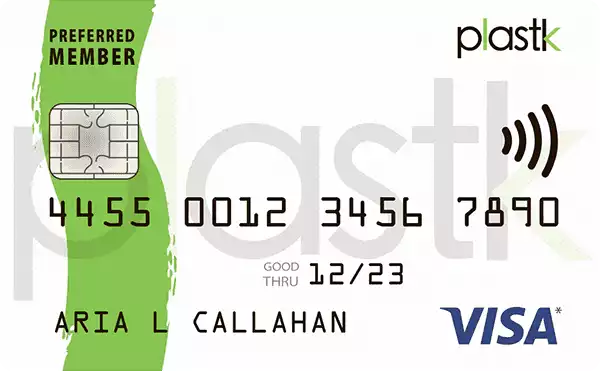
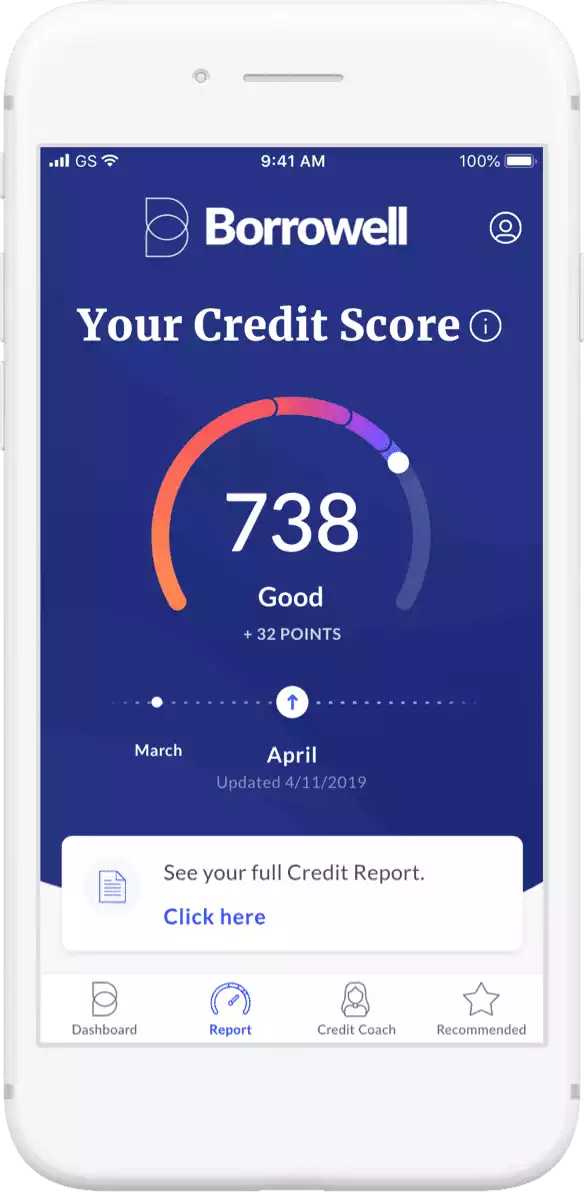
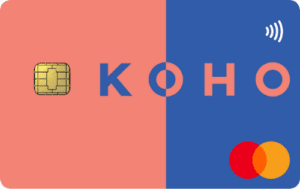

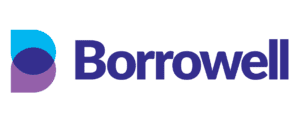
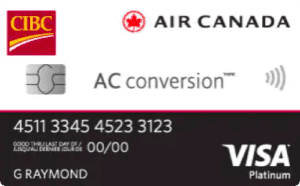
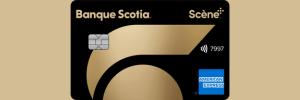









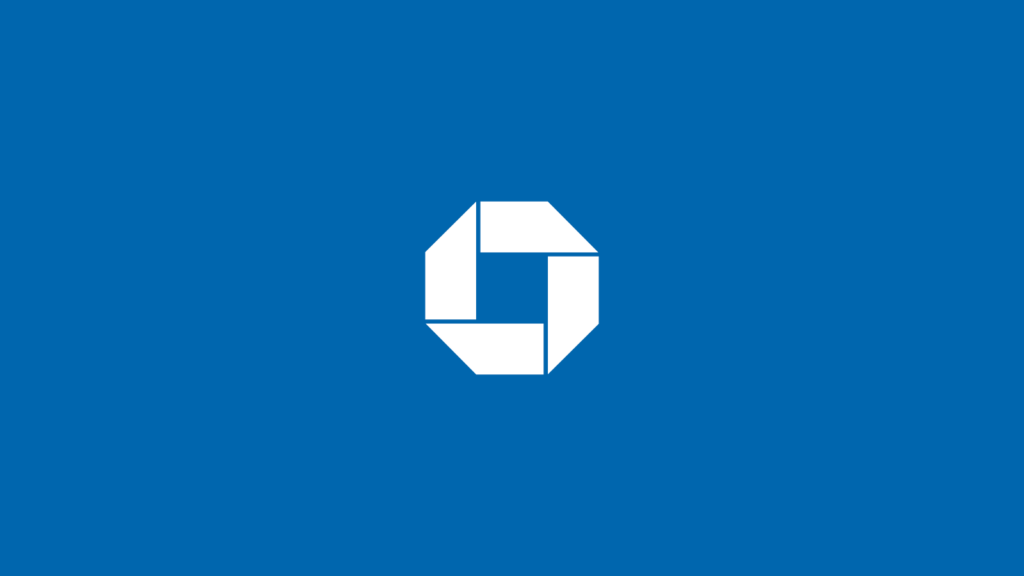



About The Author: Heidi Unrau
Heidi Unrau is the senior Finance Journalist at Hardbacon. She studied Economics at the University of Winnipeg, where she fell in love with all-things-finance. At 25, she got her first bank job as an entry-level teller. She moved up the ranks to Credit Analyst, Loans Officer, and now a Personal Finance Writer. In her spare time, you'll find her hiding in the car listening to Freakonomics podcasts, or binge-watching financial crime documentaries with a pint of Häagen-Dazs. When she's not chasing after her two little boys, she's in the hot tub or arguing with her husband over which cash back card to use for date night. She’s addicted to coffee, crypto, and obsessively checking her credit score on Borrowell.
Fun Fact: Heidi has lived in five different provinces across Canada, loves her free Tangerine bank account, and will never cut back on Starbucks. Like ever.
More posts by Heidi Unrau